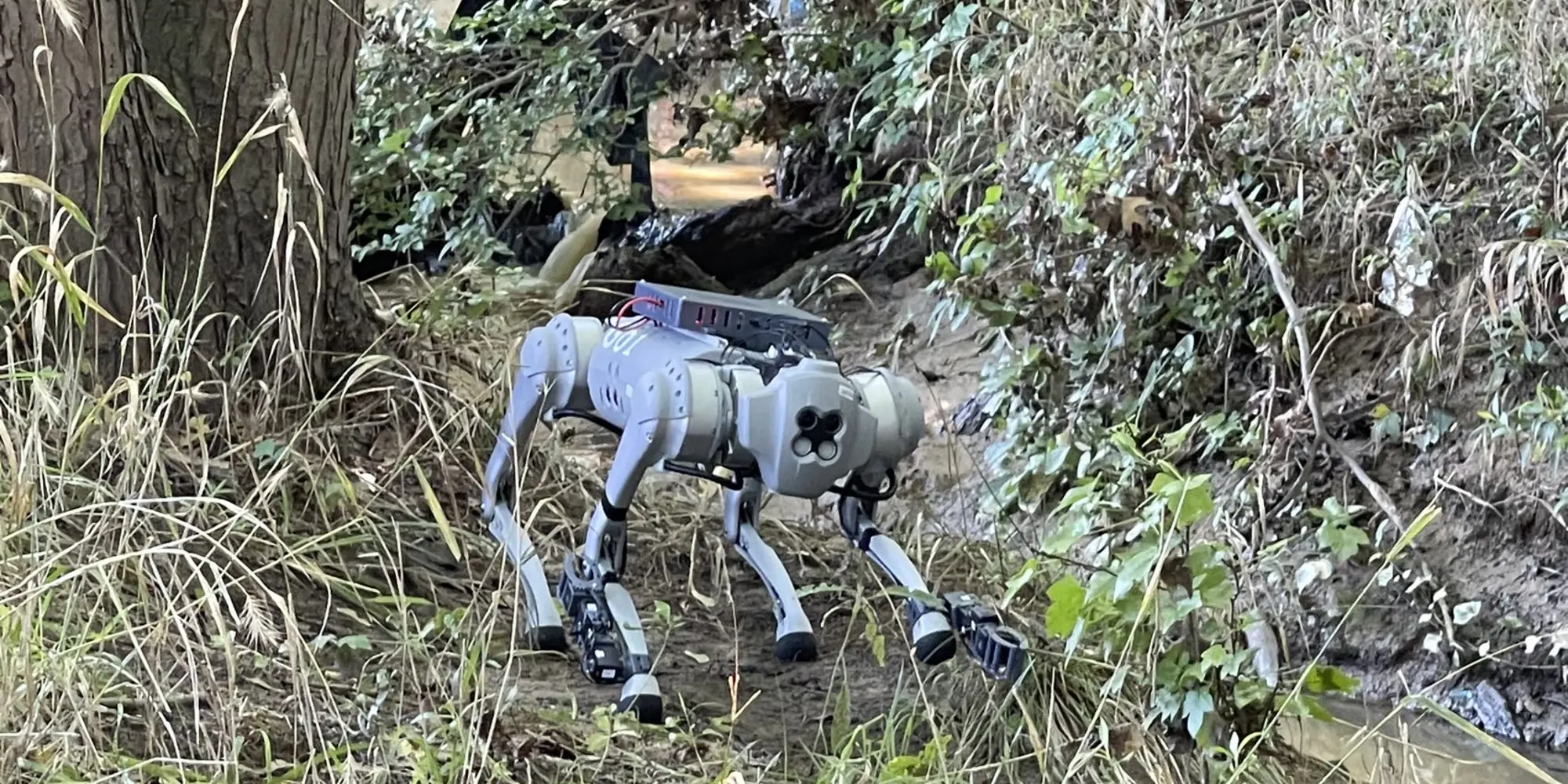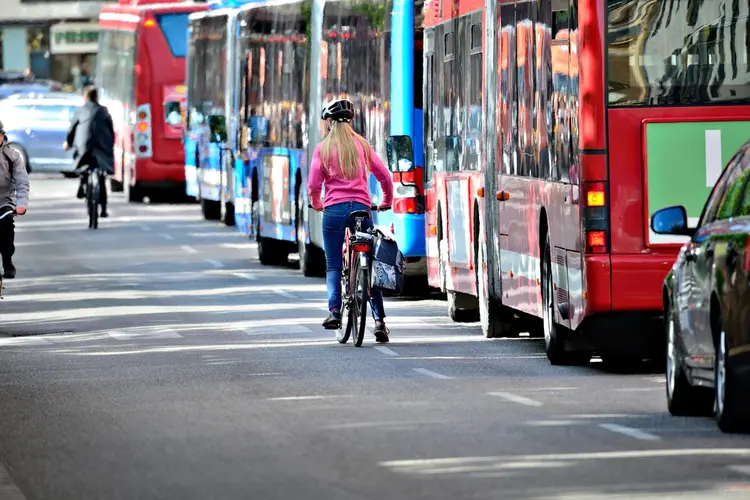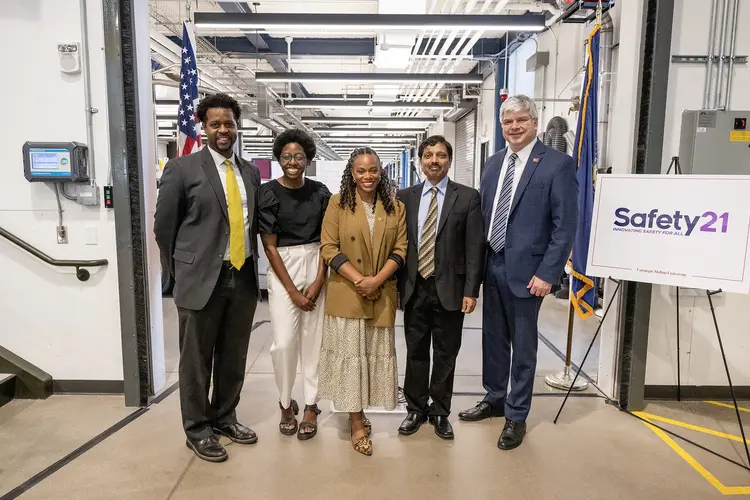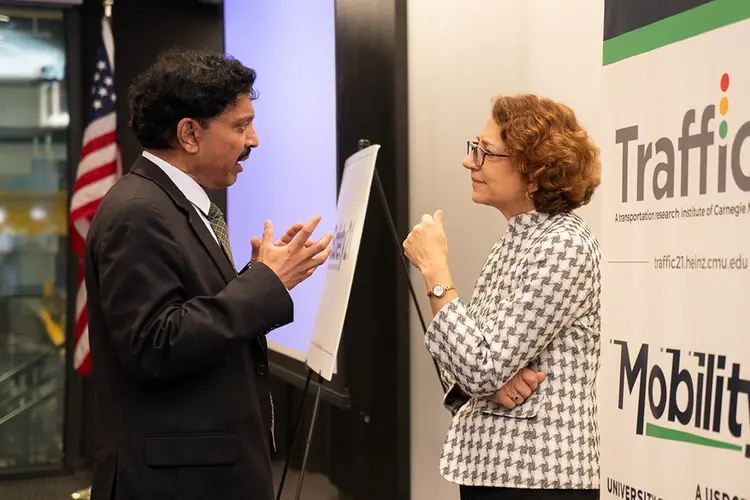
CMU Leads Future of Transportation Summit
Media Inquiries
Carnegie Mellon University’s Safety21(opens in new window) will lead the Future of Transportation Summit(opens in new window), an inaugural event hosted by the U.S. Department of Transportation (DOT) in Washington, D.C. Aug. 13-15. The summit will focus on investments in research and technology in the transportation sector and include experts from university transportation centers (opens in new window)nationwide.
The summit brings several days of panels, presentations and keynote addresses from leaders including Raj Rajkumar(opens in new window), the director of Safety21 and the George Westinghouse Professor in CMU’s Department of Electrical and Computer Engineering.
Demonstrations bring research to life
The summit will also include demonstrations of the latest technology. Rajkumar will showcase an autonomous Cadillac CT6 and offer a small number of attendees an autonomous ride around the DOT neighborhood.
Ding Zhao(opens in new window), an associate professor of mechanical engineering, will demonstrate LocoMan, a unique quadruped robot that can navigate challenging terrain. The dog-like robot, already known for helping around the house(opens in new window), can climb steep hillsides and use its paws to place sensors on difficult terrain, making landslide monitoring safer for humans.
“Landslides can be a big risk factor for transportation,” Zhao said. “Not only for the people who are using roads but also for the humans who are monitoring the landslides. Quadrupedal robots like LocoMan are capable of safely getting to the areas that need to be monitored without causing a disturbance in the area.”
Ava Jahan Biglari, a Ph.D candidate in civil and environmental engineering(opens in new window) advised by Pingbo Tang(opens in new window), will demonstrate a new way to plan vehicle inspections, combining advanced technology with human expertise. The system can be extremely helpful to people who manage large fleets of vehicles and prevent dangerous situations.
“Heavy-duty trucks, trailers and commercial vehicle fleets contribute to a lot of fatalities and injury crashes because they malfunction or are not adequately maintained,” Jahan Biglari explained. “Instead of just doing the inspection annually or semi-annually, we need to inspect them more frequently, to be sure that they are in a safe condition.”
Jahan Biglari hopes the research will enhance road safety by ensuring that the most at-risk vehicles are identified and inspected, preventing potential accidents. She also aims to improve training programs for transportation professionals, leading to a more skilled and informed workforce across the industry.
Jahan Biglari and Tang will also present a poster at the summit, along with CMU’s Nikolas Martelaro, Sean Qian, and Stephen Smith.




